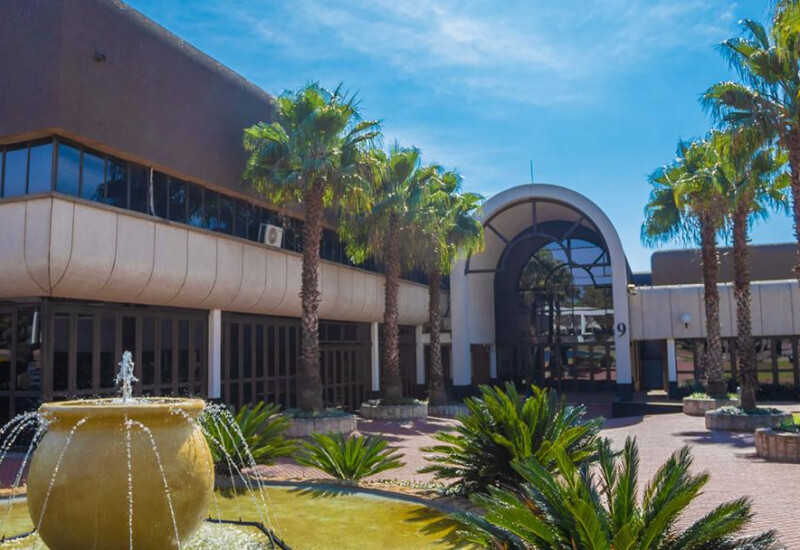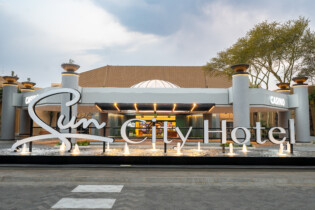The Johannesburg Expo Centre is a seasoned industry player whose success is underpinned by its networks, people and forward-thinking approach. The Exhibition Planner talks to its CEO, Craig Newman, about how these move the venue and industry forward.
In the south of Johannesburg, South Africa, lies a sprawling venue that has hosted some of
the nation’s most important events. With major dignitaries regularly in attendance, and a private helipad, the Johannesburg Expo Centre (JEC) knows how to manage an event that calls for VIP treatment while still remaining a firm favourite among its family visitors.
The JEC is Southern Africa’s largest, fully contained, multipurpose venue and a tour around its grounds, which cover an impressive total square meterage of more than 150 000 m2 across its versatile indoor and outdoor spaces, reveals just why the venue is so popular.
Each year, around the Easter weekend, the JEC puts up one South Africa’s biggest and longest-running events. The Rand Show attracts an average of 200 000 people over nine days and in 2018, it generated a spend of R50 million towards our local economy. The JEC’s facilities support large- scale events like the
Rand Show and the venue boasts an assortment of exhibition halls with versatile spaces and varied square meterage; its largest being 12 304 m2 and its smallest 615 m2. And with 20 000 secure bays available, visitors have ample space to park. The venue also provides on-site medics and security, and with no shortage of service provision available on the premises – from technical to catering – just about all aspects of your day will be taken care of.
Growing local support
Notably, the JEC has the support of some of the leading authorities in the MICE and exhibitions industry.
“During the 2019 Global Exhibitions Day, the Gauteng Tourism Authority (GTA) committed to taking the lead on having a true representation of exhibitions in the country that combine all sectors of the industry – venues, associations, organisers and service providers. It is this true representation that must come together to drive the value and importance of exhibitions within the region,” Craig explains.
Global Exhibitions Day, or GED, takes place each year on the first Wednesday of June and is an initiative being spearheaded by UFI (The Global Association of the Exhibition Industry). Now in its fourth year, #GED19 took place on 5 June 2019. This year’s GED placed a strong emphasis on the exhibitions industry being a key global economic driver by supporting millions of jobs and creating a more sustainable means of doing business.
The partnership between the JEC and the GTA is an exciting one of true industry experts.
The GTA is the official destination marketing agency for Gauteng and is one of the leading authorities for the MICE industry in the province, as well as in the exhibitions industry. The GTA aims to develop, promote, coordinate and facilitate responsible and sustainable tourism that contributes to job creation and economic growth and they have first-hand experience with how this can be achieved.
“Exhibitions are an effective way of doing business and offer a variety of sustainable job opportunities,” which is a significant benefit that will be highlighted at #GED19, says Nonnie Kubeka, head of the Gauteng Convention & Events Bureau. Craig believes that it is these networks that can improve how the exhibitions industry functions, particularly by including smaller players.
“In everything that we do, as far as delivering events and exhibitions goes, we try to find ways to bring the smaller organisations and service providers into an advantageous position where they can deal with top clients,” he says.
Putting Africa on the map
As the current president of UFI and Africa’s very first candidate to be chosen for the role that spans a total of three years, Craig is driven towards ensuring Africa is recognised as a contender among international markets and is upbeat about the future.
“Yes, new business models and the transition to modernity are global issues that also concern the African market but we are known for finding an ‘African way’ – leapfrogging whole stages of industry developments, like moving straight to mobile technologies around payments,” he concludes.





